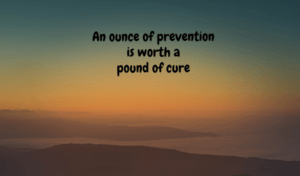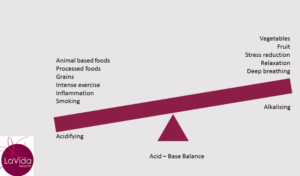A good night’s sleep is vital for so many aspects of a healthy life.
More daytime energy, less fatigue, better concentration and ability to think, fresher skin and appearance are just some of the more obvious things we associate with good sleep. However, good quality sleep is also associated with healthy weight management (via the production of our key appetite-regulating hormone (leptin) and the down-regulation of our appetite-stimulating hormone (ghrelin)). It’s also vital for detoxification and a healthy immune system. Sleep is when our body repairs and restores muscles and vital organs.
It is when we are sleeping that many of our body’s “maintenance jobs” get carried out. We are like a factory…when the day shift goes home, the maintenance and cleaning teams get to work, to make everything ready for the next day.
What does a good night’s sleep look like?
Everyone’s idea of a good night’s sleep will differ slightly and the occasional bad night is nothing to be alarmed about but, for most nights, this is what a good night will look like:
- You fall asleep easily (within 20 minutes of lights out)
- You stay asleep until you wake in the morning
- If you do wake up for some reason, you fall back to sleep easily
- You get 7-9 hours of consolidated sleep
- You wake naturally and feel refreshed
So, here are 9 things you can do to improve your sleep
If your sleep is not what it could be, start by working on the following:
- Turn off all electrical equipment (computers, tv, phones, games etc) at least an hour before bed and definitely ban them from the bedroom
- Set yourself a regular go-to-bed time and wake up time and stick to them like glue (especially the wake up time)
- Make sure your bedroom is dark, quiet and at a comfortable temperature (cooler is better). Fresh air might be helpful so perhaps have a window open or consider an air filter. Consider blackout curtains or wearing an eye mask if your room isn’t dark. Try adding a few drops of lavender essential oil to your pillowcase or tissue under your pillow.
- Try getting some exercise during the day and avoid vigorous exercise at night.
- Eliminate stimulants such as caffeine and sugar, especially from mid-afternoon onwards. (Remember nicotine is a stimulant too so try to limit it after dinner and during the night).
- Limit your alcohol consumption. Alcohol is known to inhibit your ability to reach a REM state of sleep and you need your REM sleep.
- Eat lightly in the evening…don’t give your body a big digestion task to do when it should be winding down
- Include protein in your evening meal to help keep your blood sugar stable throughout the night (a big dip in blood sugar can be a cause of waking up)
- A warm shower or bath (with some added Epsom salts) before bed might help you relax (or try one of my other suggestions for unwinding)
Start with the ones that jump out at you…either because they are the easiest or because you know they are your biggest problem. And remember, practice makes perfect. Don’t just try them for a night or two. You need to give it a few weeks of consistent application to give your body time to adapt.
Don’t forget to “catch the wave”
The chemicals of sleep come in waves, approximately every 90 minutes. If you start to feel a bit drowsy, that’s your signal that the wave is coming and you need to be ready to catch it. Ignoring the signal while you “just finish what you are doing”, will likely mean you miss the wave and it will be another 90 minutes before the next one comes along.
More tips to improve your sleep
If you want to go even further, you could add these into your routine too:
- Get yourself a pair of blue light blocking glasses. This might be especially helpful if you spend a lot of time looking at screens. You can even get blue light blocking added to your prescription glasses these days. Blue light suppresses melatonin (your sleep hormone).
- First thing on rising, get some sunshine (or at least daylight) on your face. This will help to reset your circadian rhythm.
- Turn off your central wi-fi.
- Aim to get outdoors every day. Ideally, in nature (i.e. a park, beach, bush or garden). The negative ions help to block the negative effects of the positive ions emitted by our phones, computers etc, and other toxic substances we come into contact with every day.
What else could be causing your sleep problems?
If the consistent application of these pointers does not improve your sleep and you are still feeling tired, don’t worry. There are still other things to consider. We may need to look at what else is going on for you. Things like sleep apnoea, adrenal dysfunction, hormonal imbalances (i.e. are you making enough of the sleep hormone melatonin or too much cortisol), nutritional deficiencies, blood sugar dysregulation, diet and more can all contribute to a poor night’s sleep.
There are many causes of fatigue. But the good news is, there are plenty of things you can do to reduce or even eliminate these problems.





